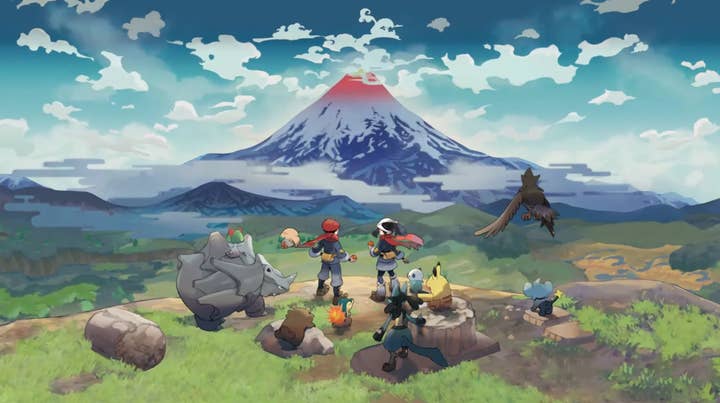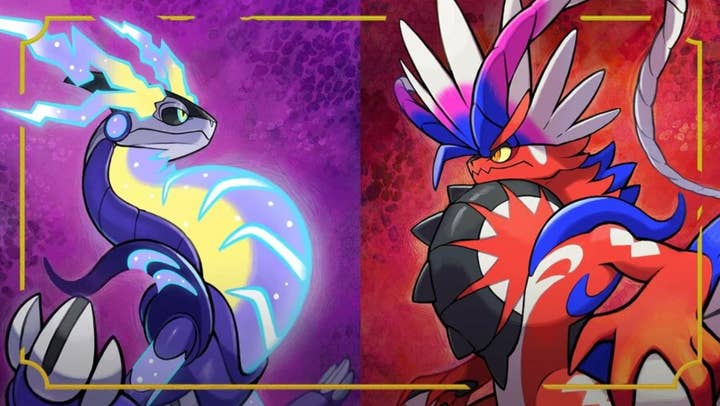It’s time for Pokémon to end the three-year cycle | Opinion
As two Pokémon games, released either end of the year, deliver huge numbers. Now is the moment to give the developers more time
The Pokémon Company are the masters at maintaining and growing a franchise.
Over 25 years since Red and Blue was released, and Pokémon remains an industry icon. In the UK, one of Nintendo’s weaker markets, Pokémon is the second biggest video game series (boxed sales) behind FIFA this year. Pokémon Scarlet and Violet just enjoyed the biggest Pokémon launch ever in terms of revenue. And anyone who visited the UK pop-up shop in August will be able to tell you just how fervent and engaged this audience is.
Pokémon has long since learned that three years is the ideal loop for the main series. Every three years a new ‘generation’ Pokémon game is released, and with it comes a new generation of cards, clothes, merchandise, events and a new era for the TV show. Each generation introduces new monsters, new characters and a new location for The Pokémon Company to build these things around.
Just as the fanbase is starting to lose a bit of interest, along comes another generation and the next cycle begins. One glance at the numbers will tell you that it’s a system that’s working.
Three years isn’t nearly enough time to build a big AAA adventure game
Yet there’s a problem. Three years isn’t nearly enough time to build a big AAA adventure game. During its years on the Gameboy and DS line of consoles, Pokémon was viewed as one of the landmark releases from a critical and commercial perspective. But on Switch, where expectations are far higher, Pokémon has faced unfavourable comparisons to some of Nintendo’s big first-party titles, such as Zelda. The Pokémon games on Switch simply don’t run as well or look as good.
Certain fans, understandably, don’t understand why a series can make so much money yet not deliver on a visual and technical front. They call developer Game Freak – one of the most prolific game studios in the world – ‘lazy’. They’ve called The Pokémon Company ‘cheap’ for not re-investing the money. But the problem isn’t the endeavour or ambition of Game Freak, or the budget for the games, but the time it has to build it.
As a result, Game Freak has tried to be economical and realistic with what it does. It approaches the development of Pokémon in an almost iterative way, trying things in one game before expanding on them in the next. It means the games don’t look quite as good as they could, or go as far in terms of innovation, but they still hit that regular three-year release cadence.
For most fans, particularly those engaged in the wider world of Pokémon, this is fine. They’d prefer this than having to wait five years between each game. But all it takes is something like, for instance, a global pandemic, and we face a situation like we have with Pokémon Scarlet and Violet, which has suffered serious performance issues from launch. The game wasn’t ready.
The title is far from unplayable. In fact, in the little I’ve played of it, it’s still a lot of fun. And I am sure a few patches will solve many of the issues. But the truth remains that Pokémon Scarlet and Violet won’t be sitting on many ‘best game’ lists this year. And the way Pokémon has developed over the past six years, it’s hard to imagine if the franchise ever will.

This is frustrating. As a fan myself, I find myself playing these games and thinking ‘if only it had another six months’. Earlier this year, the company released Pokémon Legends: Arceus, which was a truly excellent take on the series. Critics called it the best Pokémon game for more than 20 years, and I agree. But it was technically lacking, it was visually poor in places, there was only one town, and the post-game section was a bit tired. I feel that Game Freak nailed all the hard stuff – the bit about making a fun game – it just needed a bit more time with everything else.
I wonder if Legends is the answer here. The game caught the world by surprise when it launched in January, which is typically a dead zone for new releases. Even Nintendo had underestimated things, with retailers selling out in some markets. There’s no indication as to whether more Legends games are planned, but it would seem sensible. Because Game Freak now has a second Pokémon series capable of delivering the sort of numbers only its ‘generation’ games have managed to do in the past.
It creates an interesting opportunity. Call of Duty has long benefitted from having two series – Black Ops and Modern Warfare – that are developed by different teams, which take it in turns to release its titles. Pokémon could now follow this model, too.
"In hindsight, perhaps Pokémon Legends: Arceus should have launched this Christmas instead"
In hindsight (and nobody knew how well it was going to do) perhaps Legends should have launched this Christmas instead. It would have given the team the extra months it needed to tighten things up, add in a few features and polish the technical aspects. And although it didn’t introduce a new region or many new Pokémon, the game’s historical setting had a richness to it that’s ripe for further development through cards, TV shows and other media (certainly more than they did).
That would have allowed Game Freak to take another year with Scarlet and Violet, which feels like exactly what that game needed.
Of course, perhaps the developer won’t feel it’s necessary. Pokémon Legends and Scarlett and Violet were games made during a pandemic, after all. There were mitigating circumstances. And outside of some internet anger, the fans broadly seem happy with the products they’re receiving.
But I think Pokémon is better than that. Game Freak isn’t a developer to be satisfied with 7 and 8 out of 10 scores. The Pokémon games that have been released on Switch may not have lived up to their potential, but they’re still ambitious efforts by a team clearly eager to moves things on.
I have been delighted to report on the enduring popularity of Pokémon over the last ten years. The Pokémon Company leads the industry in terms of how to maintain and grow a franchise across decades and generations of fans. I just hope that in the future it’ll lead the industry in terms of the games it makes, too.

